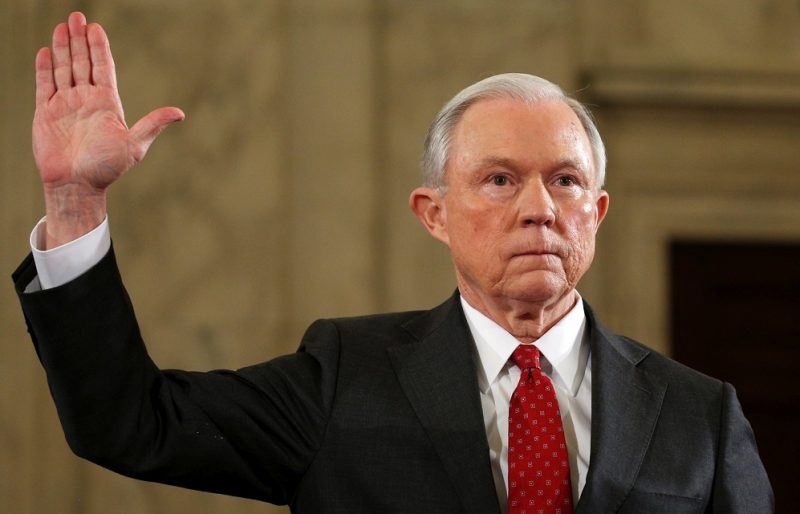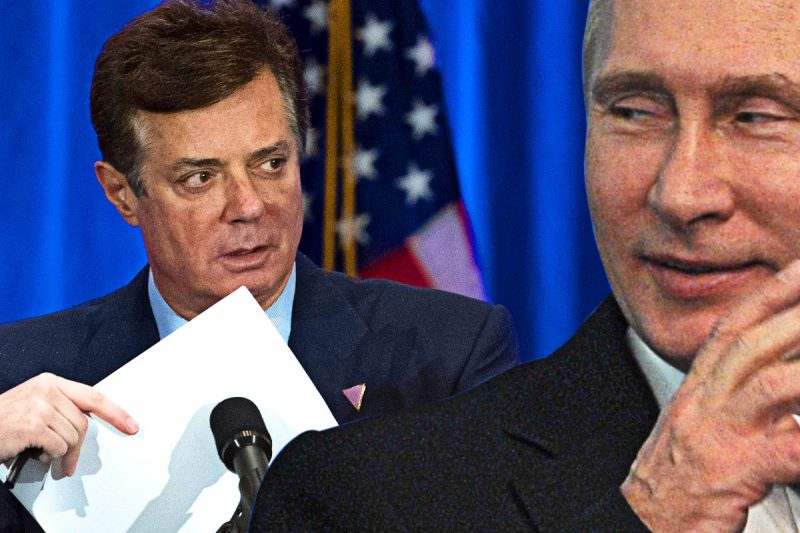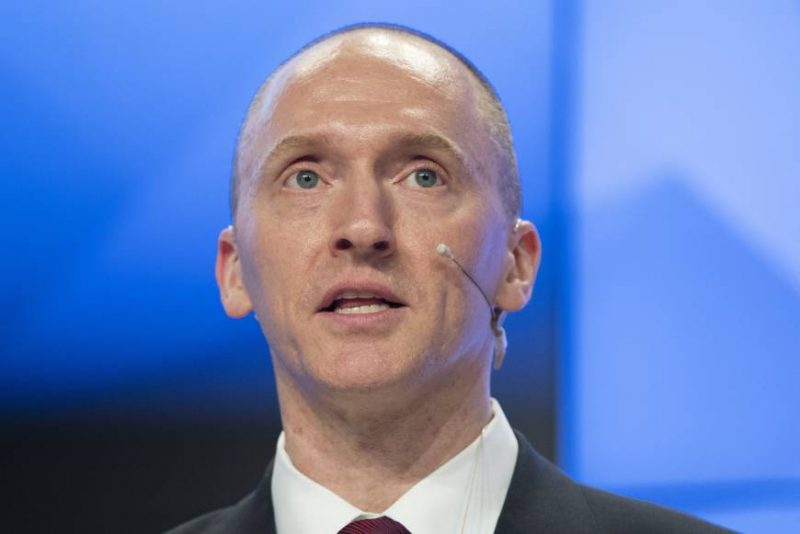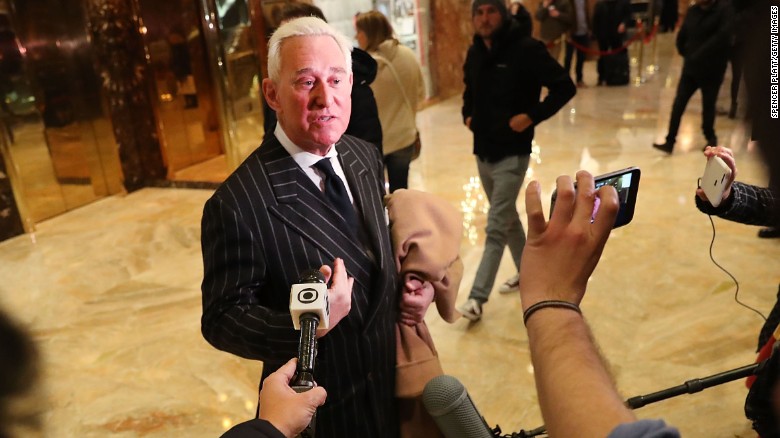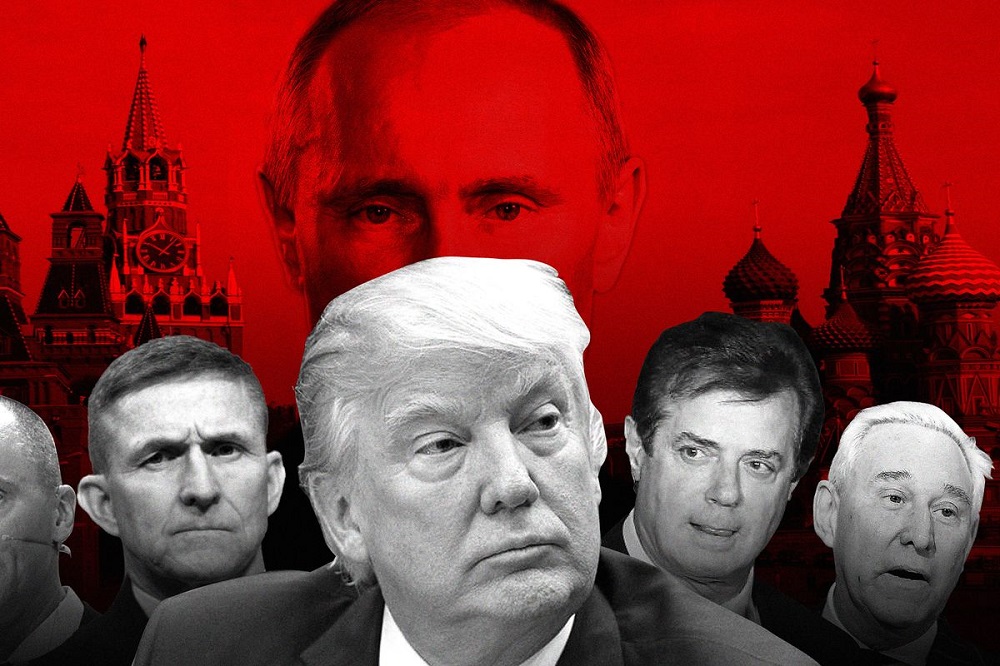

No matter how much distraction President Donald Trump throws out, there’s always a new connection to Russia and Vladimir Putin that arises every week with his associates.
This is something that won’t go away no matter how many bombs he sets off, the FBI has cranked up the time and resources they are spending on this investigation.
Despite Russia’s harmful national interests against the U.S., and its human rights violations around the world, President Trump and his team are directly and indirectly tied to Russia.
Throughout the 2016 presidential election, President Trump not only refused to criticize Russian President Vladimir Putin, but was even friendly and accommodating in his remarks. In his own words, President Trump called President Putin “highly respected.” More recently, President Trump put the U.S. on equal moral footing with Russia when responding to Bill O’Reilly’s question about Putin being a “killer,” saying “We’ve got a lot of killers… you think our country’s so innocent?” This is absolutely false moral equivalence, and unheard of for the President of the United States to insult and demean the country he leads.
President Trump has harshly criticized NATO, and exclaimed that only the NATO allies that paid equally to the alliance deserved protection from the United States. Though these remarks were softened by British Prime Minister Theresa May, who claims that President Trump fully supports the North Atlantic Treaty Organization (NATO), it’s still unclear how supportive he will be of NATO allies like the Baltic states in light of his relationship with Russia.
President Trump has also surrounded himself with people who do business with and are sympathetic to Russia. The New York Times reported that members of Trump’s 2016 campaign and other Trump associates had frequent contact with senior Russian intelligence officials throughout the campaign. In addition to these questionable communications, here are a few other associates with ties to Moscow:
Donald Trump: Not only does his past and current team have ties to Russia, but the President himself also does. He has traveled to Russia extensively, done business there often, and has ties to Russian interests. For example, in 2008 he made a real estate sale to Russian billionaire, Dmitry Rybolovlev. Trump bought a Palm Beach mansion in 2004 during a bankruptcy sale for $41 million, and less than four years later, without ever having moved in, Trump sold the mansion to Rybolovlev for $95 million.
Michael Flynn: Flynn, President Trump’s former National Security Advisor, was asked to resign just weeks after he was sworn in. His resignation came after it leaked that he misled Vice President Mike Pence about his communications with Russian officials, specifically Russian Ambassador to the U.S. Sergey Kislyak, before President Trump’s inauguration. In these communications, Flynn discussed sanctions imposed by the Obama administration on Russia – while President Obama was still in office. Earlier last year, he stated that the U.S. needs to respect that “Russia has its own national security strategy, and we have to try to figure out: How do we combine the United States’ national security strategy along with Russia’s national security strategy,” raising troubling questions. In 2015, Flynn delivered remarks at a Moscow gala honoring RT, Russia’s propaganda arm, where he was seated next to Putin. Flynn accepted $33,750 for this speech by RT, and did not correctly report the payment, thus concealing payment from a foreign government, and possibly violating the law in the meantime. Flynn continued to appear on RT as a foreign policy analyst. Altogether, Flynn was paid more than $67,000 by Russian companies before the 2016 presidential election.
Jeff Sessions: Sessions, President Trump’s Attorney General, had two conversations with Ambassador Kislyak during the 2016 presidential election. However, during later confirmation hearings, he claimed that he “did not have communications with the Russians” when prompted by Senator Al Franken. Once reports of his meetings with Kislyak surfaced, Sessions recused himself from any investigation into Russia’s interference in our 2016 presidential election. Many officials are continuing to call for his resignation.
Rex Tillerson: Tillerson, President Trump’s Secretary of State, worked on energy projects in Russia for two decades during his career at Exxon. He has publicly described his “very close relationship” with President Putin and was awarded Russia’s Order of Friendship in 2013, the highest state honor possible for a foreigner.
Jared Kushner: Kushner is President Trump’s son-in-law and current Senior Advisor. Along with Michael Flynn, Kushner met with Ambassador Kislyak during the Presidential transition. The White House later acknowledged that following that meeting, Ambassador Kislyak requested a second meeting, which Kushner had a deputy attend. However, at Kislyak’s request, Kushner did later meet with Sergey Gorkov, the head of Russia’s state-owned development bank, who has close ties to President Putin. The U.S. placed this bank on its sanctions list following Russia’s annexation of Crimea. The Senate Intelligence Committee plans to question Kushner about his meetings with Russian officials. The New York Times recently reported that Kusher failed to disclose dozens of contacts with foreign leaders on his application for top-secret security clearance — one of those contacts being Ambassador Kislyak.
Donald Trump, Jr.: Trump, Jr., President Trump’s son, met with Fabien Baussart, a leader of a Syrian opposition group backed by the Russian government, and others about how the U.S. could work with Russia on the Syrian conflict weeks before Donald Trump was elected President. He has also been quoted saying that his father’s businesses “see a lot of money pouring in from Russia”, and that he had visited Russia on business over a half dozen times.
Paul Manafort: Manafort, who has business connections to Russia and Ukraine, was hired as Trump’s campaign manager in March 2016. He then resigned in August of the same year, after reports surfaced that suggested he had received $12.7 million from Victor Yanukovych, Ukraine’s pro-Russia former president. It was recently revealed by AP that Manafort proposed in a strategy plan from as early as June 2005 that he would work to influence politics, business deals, and media inside the U.S. and Europe to benefit Putin. This plan was pitched to Oleg Deripaska, a “Russian aluminum magnate” with close ties to Putin. Manafort eventually signed a $10 million contract with Deripaska in early 2006. The Trump Administration and Manafort have both said that Manafort never worked for Russian interests. Since the FBI confirmed in a House Permanent Select Committee on Intelligence hearing on March 20 that investigators are examining whether the Trump campaign and its associates coordinated with Russia to interfere in the 2016 election, the White House has made attempts to distance itself from Manafort, claiming that he played “a very limited role” in the campaign, despite his clear leadership role as campaign chairman leading up to the Republican National Convention.
Carter Page: Page, hired as a foreign policy advisor to Trump’s 2016 campaign, was known to have deep ties to Gazprom, Russia’s state-owned gas company. In July 2016, a month after Russia’s DNC meddling was reveled in the press, Page traveled to Moscow to make a speech. The Trump campaign approved this trip, saying he would not be traveling as an official representative of the campaign. In the speech he delivered in Moscow, he criticized American foreign policy as being hypocritical – remarks which ultimately led to his resignation from Trump’s campaign. Before joining the campaign, he was a businessman “of no particular renown” working in the Moscow branch of Merrill Lynch before creating his own consulting agency. Previously, Trump identified Page as one of a small group of advisors helping to craft his foreign policy platform during the campaign. However, President Trump’s staff now claims that “Carter Page is an individual who the [then] president-elect does not know.” Page met with Russian Ambassador Sergey Kislyak at the Republican National Convention in 2016. Buzzfeed recently reported that Page had met with a Russian intelligence agent named Victor Podobnyy in 2013, who was reportedly trying to recruit Page. Podobnyy was later charged by the U.S. for acting as an unregistered agent of a foreign government.
Tevfik Arif: Arif, who founded Bayrock, a real estate group known to have many deals with Trump, had a 17-year career in the Soviet Ministry of Commerce and Trade.
Roger Stone: Stone, a former advisor to Trump, had back channel conversations with Julian Assange, the founder of Wikileaks, which is the organization that published the DNC leaks and Podesta emails during the 2016 elections. He also had exchanges with Guccifer 2.0 — a hacker believed to be linked to Russia involved in the 2016 hacking of Democratic National Committee emails — in August 2016. Also in August, he tweeted “it will soon [be] Podesta’s time in the barrell.” About two months later, Wikileaks began posting John Podesta’s emails.
Felix Sater: Sater, formerly a senior advisor to the Trump Organization, is a Russian-born Bayrock associate with extensive involvement in organized crime.
Alex Shnaider: Born in Russia, Shnaider co-financed a real estate project with Trump. Shnaider’s father-in-law, Boris J. Birshtein, was a close business associate of Sergei Mikhaylov, the head of one of the largest branches of the Russian mob.
JD Gordon: Gordon, a national security advisor for the Trump campaign met with Russian Ambassador to the US Sergey Kislyak during the Republican National Convention in Cleveland in July, who he told he would like to improve US – Russia relations. He advocated for a change to the GOP national platform to make their policies more pro-Russian and less pro-Ukraine, a change which Gordon said was directly supported by then-candidate Donald Trump.
Wilbur Ross: Ross, President Trump’s Secretary of Commerce, was the top shareholder in the Bank of Cyprus, an institution with deep Russian ties and investors who made fortunes under Russian President Vladimir Putin. According to McClatchy, the banking system in Cyprus, because of its dependence on Russian investors, is money-laundering concern for the US State Department. Ross served as the vice chairman of the board of directors for the Bank of Cyprus. The second largest investor in the Bank of Cyprus was Viktor Vekselberg, who once served on the Russian state-owned oil giant Rosneft, which is under partial sanction by the US Treasury Department. Vekselberg is known to have a close relationship with Vladimir Putin. In February, six senators sent a letter to Ross inquiring about his relationship to Vekselberg. The senators also inquired about Ross’s relationship with Vladimir Strzhalkovsky, who is also linked to the Bank of Cyprus, was a former KGB agent, and is believed to be a Putin associate.
Erik Prince: Prince, who had no formal role with the Trump campaign or transition team, had a secret meeting with a Russian close to President Putin, arranged by the United Arab Emirates, the Washington Post recently reported. The meeting reportedly took place around January 11, 2017 on the Seychelles islands, and was allegedly part of an effort to establish a back-channel line of communication between Russia and then President-elect Trump. The UAE agreed to facilitate the meeting in order to explore Russia’s willingness to curtail its relationship with Iran. Prince was a supporter of Trump, and has ties to Steve Bannon and Education Secretary Betsy DeVos, who is his sister. He was also seen in Trump transition offices in December.
In addition to these ties, it appears that Trump and his team are conscious of their guilt. In late February 2017, CNN reported that “the FBI rejected a recent White House request to publicly knock down media reports about communications between Donald Trump’s associates and Russians known to US intelligence during the 2016 presidential campaign.” This request may be a violation of procedures that limits communications between the White House and FBI on pending investigations.
Why is America’s leader and his team so close to Russia? This is either due to poor judgement or a deeper personal, financial, or political link between President Trump and Russia. It is not normal for the leader of our country to be so extensively tied to a foreign government that has sought to undermine democracies across the globe, and connections like these should be concerning to American citizens everywhere.


